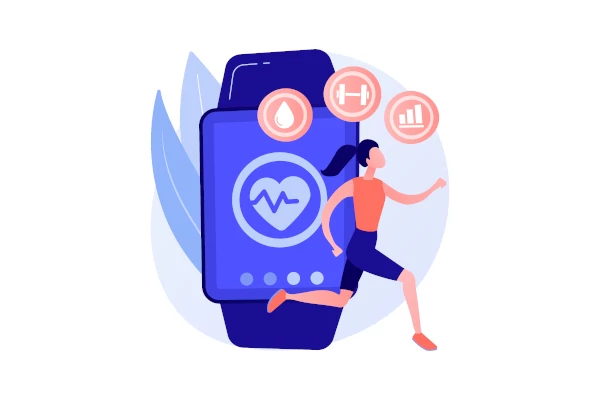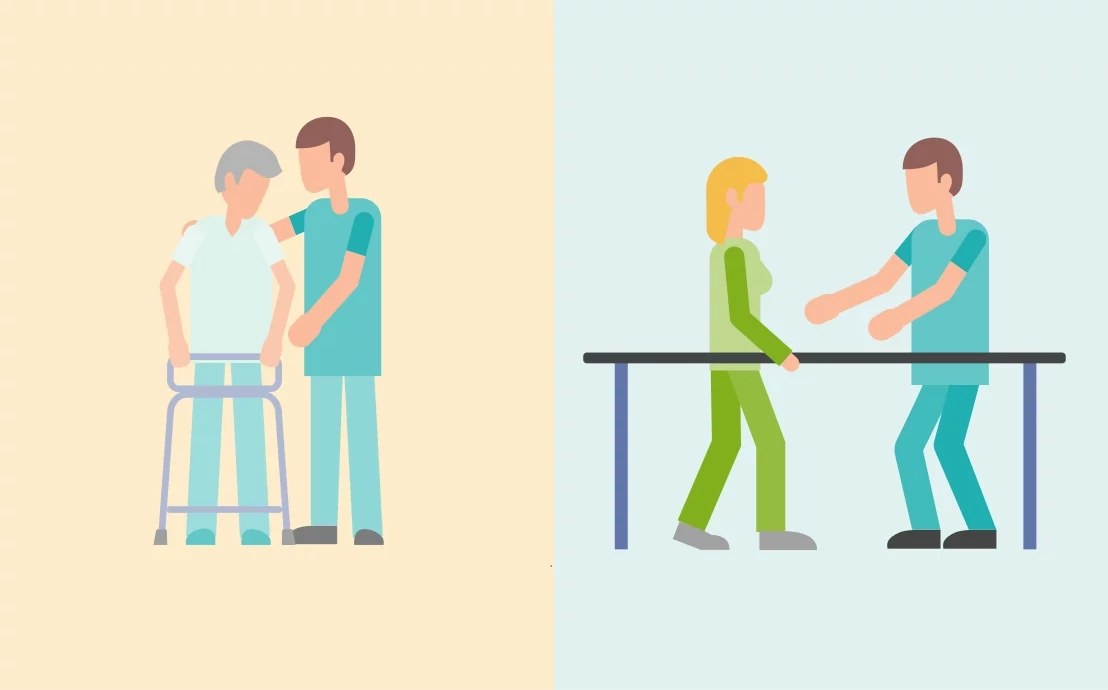As technology continues to evolve and transform the healthcare industry, physiotherapy is no exception. The field of physiotherapy has seen numerous advancements in recent years, with innovative technologies and personalized treatments leading the way. In this article, we will explore the future of physiotherapy and how these innovations are shaping the industry.
Wearable Technology
One of the most exciting developments in physiotherapy is the emergence of wearable technology. Wearable devices, such as fitness trackers and smartwatches, have become increasingly popular in recent years. These devices can track a variety of metrics, including heart rate, steps taken, and calories burned.

In the field of physiotherapy, wearable technology has the potential to revolutionize how patients receive treatment. For example, wearable sensors can be used to monitor a patient’s movement and provide real-time feedback. This can help patients improve their form and technique, leading to better outcomes.
Telehealth
Another major trend in physiotherapy is the use of telehealth. Telehealth refers to the use of technology to provide remote healthcare services. This can include video consultations, remote monitoring, and online patient portals.
Telehealth has numerous benefits for patients, including increased access to care, reduced travel time and expenses, and improved convenience. Additionally, telehealth can help physiotherapists reach a wider range of patients, particularly those in remote or underserved areas.
Personalized Treatments
Personalized treatments are another area where physiotherapy is evolving. With advances in technology, physiotherapists can now create personalized treatment plans for each patient. This can include tailored exercises and therapy programs, based on the patient’s specific needs and goals.
Personalized treatments can improve patient outcomes, as they take into account each patient’s unique circumstances. For example, a patient with a knee injury may require a different treatment plan than a patient with a back injury.
Artificial Intelligence
Finally, the use of artificial intelligence (AI) is another area where physiotherapy is evolving. AI can be used to analyze large amounts of data, including patient records and treatment outcomes. This can help physiotherapists make more informed decisions about patient care, and identify trends and patterns that may not be immediately apparent.
In addition, AI can be used to create predictive models that can anticipate patient outcomes. This can help physiotherapists tailor their treatments and interventions to each patient’s needs, leading to better outcomes.
Conclusion
The future of physiotherapy is exciting and full of potential. With the emergence of wearable technology, telehealth, personalized treatments, and artificial intelligence, patients can expect to receive more efficient, effective, and personalized care. As technology continues to evolve, the possibilities for physiotherapy are endless.
FAQs
What is the future of physiotherapy?
The future of physiotherapy is full of potential, with innovative technologies and personalized treatments leading the way. With the emergence of wearable technology, telehealth, personalized treatments, and artificial intelligence, patients can expect to receive more efficient, effective, and personalized care.
What is wearable technology in physiotherapy?
Wearable technology in physiotherapy refers to the use of devices such as fitness trackers and smartwatches to monitor a patient’s movement and provide real-time feedback. This can help patients improve their form and technique, leading to better outcomes.
What is telehealth in physiotherapy?
Telehealth in physiotherapy refers to the use of technology to provide remote healthcare services. This can include video consultations, remote monitoring, and online patient portals. Telehealth has numerous benefits for patients, including increased access to care, reduced travel time and expenses, and improved convenience.
What are personalized treatments in physiotherapy?
Personalized treatments in physiotherapy involve creating tailored exercises and therapy programs based on a patient’s specific needs and goals. With advances in technology, physiotherapists can now create personalized treatment plans for each patient, improving patient outcomes.
What is artificial intelligence in physiotherapy?
Artificial intelligence (AI) in physiotherapy involves using technology to analyze large amounts of data, including patient records and treatment outcomes. This can help physiotherapists make more informed decisions about patient care, and identify trends and patterns that may not be immediately apparent. AI can also be used to create predictive models that can anticipate patient outcomes, leading to better treatments and interventions.
How will these innovations and advancements impact the future of physiotherapy?
The innovations and advancements in physiotherapy will have a significant impact on the industry, improving patient outcomes, increasing access to care, and providing more personalized treatments. As technology continues to evolve, the possibilities for physiotherapy are endless, and the future of the industry looks promising.


![High frequency vacuum tube for peripheral stimulation. Use of electrical apparatus. [Physical therapy.] World War 1 era.](https://healingfirstphysiotherapy.com/wp-content/uploads/2023/03/2491378519_0acbd81892_c.webp)
